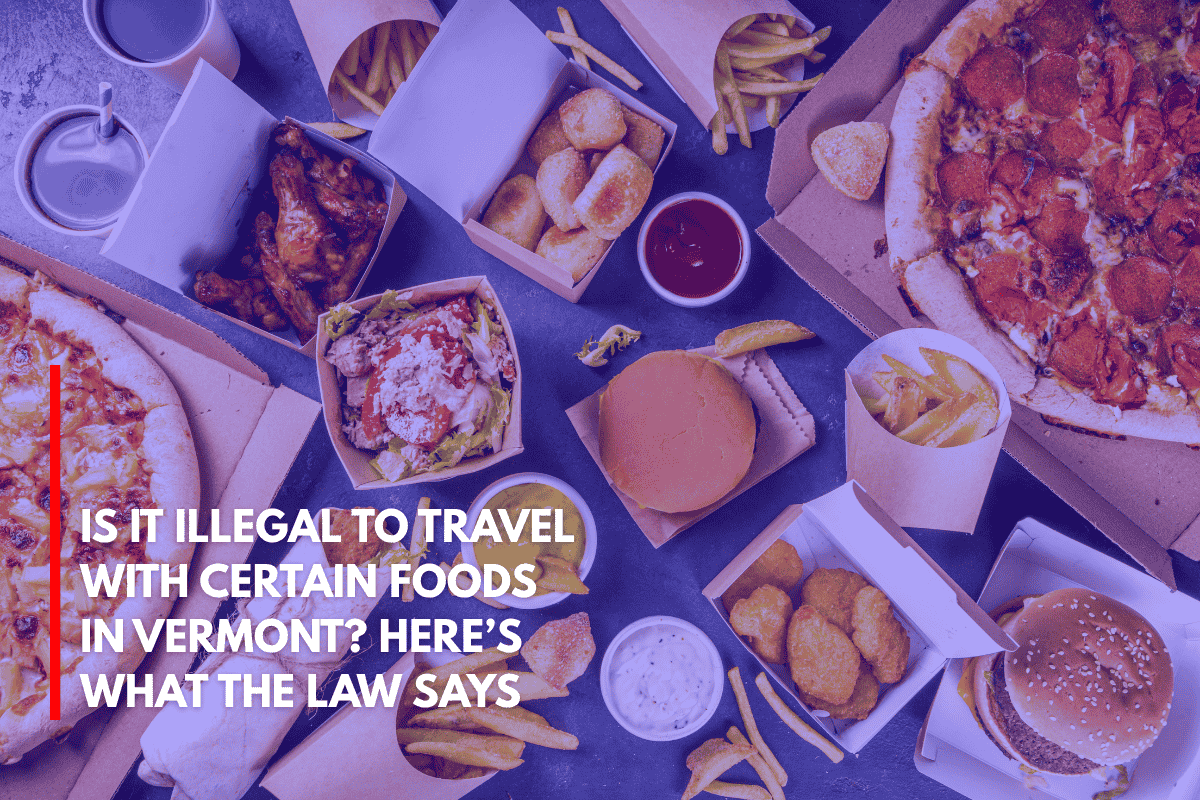Traveling with food in Vermont is generally legal for personal use, but there are important regulations to be aware of if you plan to sell, distribute, or transport certain foods commercially or in large quantities. Here’s what Vermont law says about traveling with food:
Personal vs. Commercial Transport
Personal Use: There are no state laws prohibiting individuals from traveling with food for their own consumption, whether it’s produce, packaged goods, or homemade items.
Commercial Transport: If you are transporting food to sell or distribute, or if you are bringing food into the state for sale at events, markets, or to supply businesses, you must comply with Vermont’s food safety and licensing requirements.
Key Regulations for Food Transport in Vermont
Licensing and Permits: Anyone selling food—including at farmers’ markets, roadside stands, or through mobile units like food trucks—must obtain the appropriate licenses and permits. This includes a food service establishment license, a public health permit, and sometimes a mobile food facility permit.
Food Safety and Inspection: Meat and poultry products must be inspected and labeled according to state or federal standards if they are to be sold. Uninspected meat or poultry cannot be sold unless it meets specific exemptions (such as uninspected whole poultry, which can only be sold as a whole bird and must be properly labeled).
Labeling Requirements: Packaged foods, including preserves, pickles, baked goods, and maple syrup, must comply with Vermont’s packaging and labeling laws. For example, maple syrup must be graded and labeled with the producer’s name and address.
Out-of-State Caterers and Suppliers: If you are an out-of-state caterer or supplier bringing food into Vermont for sale or distribution, you must show evidence that you are licensed in your home state and that you are maintaining sanitary standards at least equivalent to Vermont’s regulations.
Special Cases and Restrictions
Maple Syrup and Vermont Branding: It is illegal to use the Vermont name on products not actually made in Vermont. Additionally, products labeled as “maple” must contain real maple syrup; otherwise, they cannot be sold as such in Vermont.
Animals in Food Preparation Areas: No animals or pets are allowed in kitchen areas while food is being prepared, which applies to both fixed and mobile food establishments.
Summary Table
| Situation | Legal Requirements and Restrictions |
|---|---|
| Traveling with food for personal use | No restrictions |
| Selling food at markets/stands | License, permit, inspection, and labeling required |
| Transporting meat/poultry to sell | Inspection and labeling required |
| Out-of-state food suppliers | Must be licensed and meet Vermont’s standards |
| Labeling maple syrup/products | Must be real maple, proper grading and labeling |
| Animals in kitchens | Prohibited during food preparation |
Traveling with food for personal use in Vermont is not restricted by law. However, if you are transporting food to sell or distribute, you must comply with Vermont’s licensing, inspection, and labeling requirements.
Special rules apply to products like maple syrup and to the use of the Vermont name on food items. Always check with the Vermont Agency of Agriculture, Food & Markets for the most current regulations if you plan to transport food for commercial purposes.
Sources:
- https://www.healthvermont.gov/sites/default/files/document/reg-food-service-establishments.pdf
- https://www.law.cornell.edu/regulations/vermont/13-018-Code-Vt-R-13-140-018-X
- https://pos.toasttab.com/blog/on-the-line/food-truck-licenses-and-permits-in-vermont











Leave a Reply